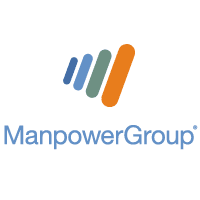Software Solutions to Drive Business Success
Experis solves business needs with innovative software solutions. With decades of experience, deep industry knowledge and unmatched expertise, we can quickly deliver top applications for your organisation.
Enterprise Application Services
SAP Consultancy Services cover every phase of the application life cycle from current operations to business requirements, technology outsourcing or technical evolution.
Through professional resourcing and our Experis Academy, we get your workforce ready for digital transformation. We attract and match talent with in-demand skills as well as provide critical training in areas such as: SAP, Oracle, Microsoft and other application technologies.
We implement integrations between various systems and custom developments using technologies such as SAP Fiori, SCP, .Net and Java. We help organisations establish a new way of working, focused on analysis and real-time decision making.
We implement market leading products such as oracle Cloud, Microsoft Dynamics and Open Text. Our capabilities to implement and maintain these services include:
Various ERPs
Reporting Solutions
Customer Experience Products
Human Capital Management Tools
Travel Expenses Management Systems
Digitalisation
Experis is also a Microsoft Gold Partner, part of a network of Microsoft's most highly accredited independent technical support providers.
Technologies continue to evolve as do the methods and knowledge needed to test them. We partner with you to build an approach to continuous improvement to insure long-term effectiveness.
Our Services
-

Professional Resourcing
Finding the right talent with in-demand skills and expertise to fill your most critical roles.
-

IT Consulting
Leading digital transformation practices through our network of consultants, experts and partners.
-

Project Services
Providing business-critical IT project expertise and implementation of new solutions.
-

Managed Services
Managing IT resourcing, application maintenance and operations so you can focus on your core business.
Add the tag: "enterprise-applications" to the blogs you want to display here..
-

Webinar April 12th - The 3 Trends Driving Transformation in Technology Roles
Trends Driving Transformation in Technology Roles WebinarIn the modern business environment every company has to be a tech company to a certain extent so we will be exploring the key trends impacting on technology roles and what insights companies need to know from a digital transformation perspective. We are delighted to be joined by Icon Accounting as a guest speaker for the event where they will be providing key insights from their perspective on how the workforce trends are changing to encompass more untraditional working models.Join us for our webinar where we will be delving into these trends. Hosted by Experis Ireland featuring two speakers to discuss the key trends.WATCH ON-DEMAND HERE Key Webinar Takeaways will Include:* Trending technology jobs for 2023* Roles of the future that will become increasingly significant* Contractors becoming the new norm in terms of tech staffing* Restructuring in the tech sector and what's predicted for the rest of 2023* Digital transformation and keeping updated on best practices.When - Wednesday April 12th at 12pm. The webinars last 45 minutes and include Q&A.This is a free webinar and suitable for HR Professionals, Senior Management and Business Executives. Registrations is required and places are limited to 4 attendees per company. Book your place today and you are welcome to invite a colleague who might like to attend.
-

Irelands Q2 Hiring Outlook Optimistic Despite the Worst Talent Shortage in 17 Years
37% of Irish Employers are Planning on Hiring New Staff in Q2 2023Irish employers continue to hire strongly, but more than four in five are struggling to attract talent according to the latest ManpowerGroup Employment Outlook Survey. In the second quarter of 2023 the national hiring Outlook is +22%, down three percentage-points on last quarter and down eight percentage-points year-on-year.The ManpowerGroup Employment Outlook Survey is based on responses from 408 employers across Ireland. It asks whether employers intend to hire additional workers or reduce the size of their workforce in the coming quarter. It is the most comprehensive, forward-looking employment survey of its kind in the world. 81% of Irish employers are having difficulty finding skilled talent, the highest figure recorded since the survey began. The Transport, Logistics & Automotive sector reports the greatest difficulty finding talent (+90%), followed by Energy & Utilities (+88%), and Health Care & Life Sciences (+86%).“Businesses in Ireland are experiencing the worst talent shortage on record.” said John Galvin, Managing Director, ManpowerGroup Ireland. “Businesses are proactively trying to hire, but more than eight in ten are struggling to find the talent they need, more than at any other time in the past two decades ManpowerGroup has been tracking talent shortages. This is set against a backdrop of decreasing job applications, increased job-hopping, and increasingly higher salary expectations from candidates.” “To attract skilled talent in a talent scarce market, we are seeing businesses offering increased salaries across all levels. Data shows an increase of 16% for the €20k plus salary range, 20% increase for the €40k plus range, and an increase of 24% for jobs paying over €100k. This is substantially higher than the 7.8% inflation rate”.The Information Technology sector is recording the highest increase in optimism of any sector, with +32% of employers intending to hire, up 23 percentage-points on last quarter. Taking the rest of the top spots are Healthcare and Life Sciences (+42%), Finance & Real Estate (+34%) and Transport, Logistics & Automotive (+33%).“The Tech sector is coming back to life” explains Galvin. “Renewed optimism is revolving around Ireland’s positive economic growth projections for 2023 and the cooling of interest rate increases. However, with the talent shortage at a record high, candidates can afford to be very selective over the roles they choose, with 79% of IT companies reporting difficulty finding skilled talent.”Employers in Dublin report a hiring Outlook of +25%, down two percentage-points on last quarter and a decline of four percentage-points year-on-year. Leinster (9%), Connaught (+15%), Munster (+30%), and Ulster [Cavan, Donegal & Monaghan] (+35%) all report positive Outlooks.82% of employers in Dublin report difficulty finding skilled talent. Across the regions, Munster (86%), Leinster (83%), Ulster [Cavan, Donegal, and Monaghan] (81%), while Connaught reports the least difficulty (59%).Galvin continues: “We have seen a slight decline in Dublin’s employment Outlook, with our data showing job advertisements down 12%. However, hiring across the Capital remains strong – nowhere more so than in the Healthcare & Life Sciences sector, where more than half the employers in the industry are looking to hire. Despite this hiring optimism, the Healthcare & Life Sciences space is having some of the greatest difficulty finding the talent that fits their needs.”ManpowerGroup forecast a decline in hiring Outlook for micro-businesses in Ireland for Q2, with 22% of businesses with ten employees or fewer intending to hire, down 22 percentage-points on last quarter. Meanwhile, large businesses with over 250 employees have increased their hiring plans, with30% intending to hire, up nine percentage-points on Q1. 72% of micro-businesses report difficulty finding skilled talent, compared to 88% of small businesses with 10-49 employees, 81% of medium-sized businesses with 50-249 employees, and 79% of large businesses.“We know that salaries are increasing in most sectors, and larger employers have the greatest ability to absorb salary increases. Employers may also be reducing headcount in non-essential roles in order to pay for the salaries needed to meet the expectations of highly skilled talent. This is more challenging for smaller businesses who have less headroom to downsize while remaining operational. Despite this, businesses of all sizes remain optimistic going into the second quarter.” concludes Galvin.
-

Cybersecurity is the Top IT Staffing Priority for 2023
Cybersecurity Professionals Are Highly Sought After for 2023. Unsurprising Cybersecurity is the number one priority for organisations in 2023 when it comes to prioritising new hire resources. This space has attracted much media attention due to the increasing volume of cyber attacks experienced by companies in Ireland and Globally (HSE, learning institutions and financial organisations being particularly targeted). As a result many organisations of all sizes and sectors have placed a much higher degree of scrutiny on their internal processes and protection capabilities. There has been an uptick in the number of direct job hires in this space to maintain and manage organisations cybersecurity requirements in house. The impact of the cyber skills shortage on organisations is significant. Organisations that are unable to fill critical cyber security positions risk becoming vulnerable to cyber threats. The consequences of a cyber-attack can be devastating, including financial losses, reputational damage, legal issues, and loss of customer trust. Cyber security incidents can also lead to the loss of sensitive data, which can have severe consequences for the affected individuals and organisations.The top priorities for IT staffing centre around utilising existing tech rather than developing new solutions, with Cybersecurity (34%) Technical Support (32%) and Customer Experience (31%) ranking as the top 3 priorities. Smaller businesses focus more on customer experience, prioritizing hiring for customer/user experience roles and customer relationship roles, whereas larger organisations prioritize cybersecurity. New IT hires are more likely to have the required technical capability but need upskilling in company culture and soft skills. 43% of organsations plan to increase their IT talent budgets in the next 12 months despite fears around recession and inflation. Large organisations are predicting bigger increases in their IT talent budget. Cyber security is a top priority for all organisation types worldwide. However, the cyber security skills shortage has long been a concern among cyber security professionals. With more and more cyber threats emerging every day, organisations must ensure they have the right personnel and resources in place to protect their assets. At Experis we are seeing a significant rise in demand for cybersecurity staff, with candidates possessing the required technical skillsets in high demand. These candidates are hard to find in the marketplace and requires significant sourcing capabilities in order to match job requirements with candidate abilities. Download our latest insights into the IT Talent Market below and view our current Job Vacancies on our website or Reach Out to Us if you are considering hiring cybersecurity professions for your business.
-

What are the Latest HR Trends in the Technology Sector?
The Latest HR Tech Trends from Experis IrelandThe layoffs by big tech companies have released much needed skilled talent for other IT companies to attract and hire, which may ease the talent shortage in IT. Meanwhile, long-standing tech companies like IBM and Google are continuing to hire. Communication Services (19) and Consumer Goods & Services (19), while still moderately confident, expect the smallest increase in payrolls following lower consumer confidence on the back of high cost of living and inflation. Current workplace tech challenges are being met by upskilling the existing workforce, but future digital transformation anticipates a rise in automation Currently, employers are more likely to meet technology challenges by training and upskilling their existing workforce (50%) or hiring workers with the right skills (46%). Although workers are willing and able to upskill, current upskilling programs face challenges due to lack of budget and time. Looking to the future, consideration of automation as a solution increases from 39% to 50% among employers. Technology challenges in different sectors are currently being met using automation in 35-48% of organizations, but in the future more than half in every sector expect to use automation to meet these challenges. Cybersecurity is the top IT staffing priority for the coming 12 months The top priorities for IT staffing center around utilizing existing tech rather than developing new solutions, with Cybersecurity (34%) Technical Support (32%) and Customer Experience (31%) ranking as the top 3 priorities. Smaller businesses focus more on customer experience, prioritizing hiring for customer/user experience roles and customer relationship roles, whereas larger organizations prioritize cybersecurity. New IT hires are more likely to have the required technical capability but need upskilling in company culture and soft skills. Top priorities for IT staffing align with perceived IT skills gapsGreatest IT skills gaps are perceived to be in Cybersecurity (33%) and Technical Support (32%) mirroring the areas which employers cited as top priorities for hiring. IT sector reports the greatest need for training in Cybersecurity (44%) despite their industry expertise, perhaps reflecting their heightened understanding of risk in this area. 43% of organizations plan to increase their IT talent budgets in the next 12 months despite fears around recession and inflationLarge organizations predicting bigger increases in their IT talent budget. DOWNLOAD THE FULL REPORT HERE
-

ManpowerGroup’s 2023 Workforce Trends Report Reveals “The New Human Age” Is Upon Us
ManpowerGroup’s 2023 Workforce Trends Report Reveals “The New Human Age” Is Upon UsShifting generational needs and growing demands for greater choice will be key drivers in the race for talentAmidst the growing digitisation of work and the workforce, ManpowerGroup’s New 2023 Workforce Trends Report, “The New Human Age,” finds that although technology may be the great enabler, humans are still the catalyst to the future. This research identifies 14 Key Trends shaping the future of work and impacting today’s employers and the people they employ. These include shifting demographics, individual choice, tech adoption, and competitive drivers. The report also provides guidance on how employers can attract and retain talent in this new age. Growing talent shortages place even more pressure on attracting and retaining talent of every generation.The latest research found that the following key factors are evident in the marketplace Purpose and balance matter; It’s time to tear the paper ceiling; Look to older workers to increase workforce participation; Remote/hybrid work promotes balance but could affect career; progression – with women most impacted; Women are more motivated than men about getting back to the office; Upskill workers or they will upskill themselves; Humans are seeking more humanity in a post-pandemic workplace; Employees are voting with their feet; Both employers and workers believe in-person brainstorming is inherently better.
-

Hiring Trends & Business Growth Webinar for Q1 - Feb 22nd 12pm
ManpowerGroup Hiring Trends for Q1 & Business Growth WebinarJoin us for the First ManpowerGroup Ireland Webinar of 2023 where we will be discussing the findings from our latest Q1 Employment Outlook Report and its implications for upcoming recruitment campaigns. We are delighted to be joined by Grifols, a client of ManpowerGroup, who will be discussing their growth plans for 2023 and how they are implementing their recruitment strategies to attract the talent they require to match their business growth objectives. Wednesday February 22nd at 12pm. Speakers from Talent Solutions, ManpowerGroup Ireland and Grifols. 45 minutes duration and Q&A. Key Discussion Points for the Webinar will include:* The latest insights from our Employment Outlook Survey for Q1 2023;* How the findings will impact on organisations recruitment plans;* What types of organisations will be doing the majority of hiring in Q1;* Why companies need to adapt to compete for talent;* What sectors are hiring and what volumes will be required to match demand;* Where are the talent shortages in Ireland and how are organisations adapting;* The latest Tech/IT talent HR trends in the marketplace;* Grifols will be discussing their growth plans for 2023 in Ireland and how they intend to recruit the skilled talent they need in Ireland;* Q&A on any aspect of the topics or any HR area attendees would like to discuss.This is a Free Webinar and suitable for HR Professionals, Senior Management, Talent Acquisition, Business Owners, Talent & People Managers and Business Executives. Registrations is required and places are limited to 4 attendees per company. Book your place today and you are welcome to invite a colleague/friend who might like to attend.
-

ManpowerGroup Ireland Q1 2023 Employment Outlook Report Just Released
Communications & Finance Sectors Boom in Q1 2023; IT Sector Puts on the Breaks Pulling Back from Last Years Highs · Ireland’s Net Employment Outlook remains a positive +23%, a slight decline of 3 percentage-points on Q4 2022· Dublin-based Communications Services and Finance sectors lead the pack with hiring intentions of +46% and +43% · However, the I.T sector puts on the brakes but remains positive with +9% intending to hire· Big businesses hiring cools, but small businesses expand hiring plans with +41% intending to hire. Irish employers will enter a state of cautious growth in the new year, according to the latest ManpowerGroup Employment Outlook Survey. In the first quarter of 2023 the national hiring Outlook is +25%, down 3 percentage-points on last quarter and down 22 percentage-points on Q1 2022’s record start to a year. All sectors remain positive, but employers paint a mixed picture – with hiring surging in the Dublin-based Finance sectors, but employers in the Tech, Hospitality & Consumer goods sectors are less optimistic. The ManpowerGroup Employment Outlook Survey is based on responses from 410 employers across Ireland. It asks whether employers intend to hire additional workers or reduce the size of their workforce in the coming quarter. It is the most comprehensive, forward-looking employment survey of its kind in the world. The Communication Services sector is recording the strongest hiring intention in Ireland, with +46% of employers in the telecommunications, entertainment and media space planning to hire in the first quarter, an increase of 28 percentage-points on last quarter and up + percentage-points year-on-year. This is followed by the Finance & Real Estate sector, with +43% of employers plan to hire, an increase of 9 percentage-points on last quarter and up 13 percentage points year-on-year. “All sectors remain optimistic, but it’s a mixed picture.” said John Galvin, Managing Director, ManpowerGroup Ireland. “We’re seeing the communications industry go from strength to strength, and the Finance sector continues to boom – both showing record hiring intentions. However, the previously booming Tech sector is now much more cautious following a period of unprecedented hiring, impacted by lay-offs in big-tech companies based in Dublin. Employers in Dublin report a hiring Outlook of +27%, an increase of 4 percentage-points on last quarter and a decline of -20 percentage-points year-on-year. Ulster is the most optimistic region at (+29%) in bucking the national trend by increasing hiring intention in Q1. Munster (+16%), Leinster (+20%), and Connaught (+23%) report positive Outlooks. “Dublin is continuing to perform as a global centre of business activity.” explains Galvin. “Despite a slight national decline and hit to the tech sector, Dublin remains buoyant – driven by the City’s booming Finance industry which continues to see the benefits of international investment, and a burgeoning Life Sciences sector which has accelerated hiring since last quarter.” The Consumer Goods & Services sector is recording a hiring intention of +12%, down 10 percentage-points on last quarter and a decline of 43 percentage-points year-on-year. This indicates a slowdown in hiring across restaurants, hotels, arts, and retail trade, particularly outside of major metropolitan areas. Galvin explains: “As economic pressures put a squeeze on all of us, we’re seeing employers across the service sector rein in their hiring plans, particularly in rural parts of the country where businesses are less insulated from economic shocks. However, the mood leans towards cautious growth as employers are still hiring in positive numbers.” Much of the decline in Outlook has been driven by larger employers, with 21% intending to hire in Q1, a decline of -25 percentage-points on last quarter. Meanwhile, 41% of businesses with ten employees or less intend to hire, up 12 percentage-points on last quarter and up 7 percentage-points on last year. “As large organisations took the lead in the majority of hiring for most of 2022, we are seeing smaller business become more confident in their growth prospects. We are also seeing cases where smaller businesses are taking advantage of larger organisations restructuring programs and snapping up staff they were previously unable to attract due to competition with large organisations” Galvin concludes.
-

The Total Workforce Index 2022 - Download The Results
The 2022 ManpowerGroup Total Workforce Index Report Has Been PublishedCompanies across all industries and markets are facing intense competition for talent. In fact, ManpowerGroup’s 2022 Talent Shortage Survey, found that 75% of companies globally face talent shortages and difficulty hiring – a 16-year high.Even as companies seek to mitigate the effects of this unprecedented labour market, they are also balancing inflation and wage pressure, changing demographics and geopolitical upheaval. For many, the pressure to find sustainable solutions has never been greater.The Total Workforce Index(TWI)provides a vital edge in the race for talent, helping organisations to focus on short, medium and long-term investments labour markets with the most potential. Whether your organisation is looking to optimise its location strategy, define the right workforce mix or cultivate sustainable pools of skilled talent, the 2022 Total Workforce Index (TWI) sheds light on opportunities to engage workforces by evaluating more than 200 key factors that relate to the Workforce Availability, Cost Efficiency, Regulation and Productivity in more than 60 markets around the world.Ireland ranks #1 in Europe under the 2022 analysis and #4th overall of the 60 regions studied highlighting Irelands efficiency and attractiveness as a Global business hub.Download the 2022 Analysis– Just enter your details in our below form to learn more about the impact of the growing demand for remote talent and how the talent shortage is changing educational requirements.The Total Workforce Index™ (TWI)is the only tool of its kind to assess the relative ease of sourcing, hiring and retaining both contingent and permanent workforce skills in competing labour markets around the world. Visit the Total Workforce Index website to explore further and access the Workforce Results and Market Profiles.Just as the GDP of a market is used as an economic indicator, the Total Workforce Index™ can be used as an indicator of workforce potential. Total Workforce Index™ data provide important perspectives and insights that can influence both short- and long-term strategies involving workforce procurement.
-

ManpowerGroup CSR Winner at the Employment & Recruitment Federation Awards 2022
ManpowerGroup Ireland CSR Winner at the Employment & Recruitment Federation Awards 2022ManpowerGroup Ireland are delighted to win the prestigious Best Company Social Responsibility (CSR) Award at the Employment & Recruitment Federation Awards 2022 which took place last Friday November 25th at the Shelbourne Hotel. The CSR The award recognises the company’s efforts in integrating social and environmental factors into our business aims and objectives.Some of the initiatives that received specific recognition from the judging panel included the Investors in Diversity Silver Award, the Ibec Keepwell Mark 2022, the Ibec Top 100 Companies in Wellbeing, ManpowerGroup’s Towards a Net Zero Future campaign, 2022 Worlds Most Ethical Company and the ManpowerGroup Sunflower Project, which assists the women of Ukraine gain employment in Ireland. We are proud of our positive contributions in these initiatives and the social impact that has been made.We would like to acknowledge the contributions of Oliva Kehoe and her HR team for all their great work in engaging with the various CSR initiatives that were the basis of our ERF awards win. It is also important to highlight the various committees involved and the individual contributions that were made to these CRS programmes, specifically the Investors in Diversity, the Ibec Keepwell Mark and the Support the Women of Ukraine campaigns. The Marketing Department submitted the winning awards entry so a thanks to Paul and team for developing the submitting and in highlighting the great work undertaken by the business in 2022.We hope everyone in ManpowerGroup Ireland takes some pride in being part of an organisation that strives to make a positive contribution in improving the lives of the people we work with and the people that work for us in the ManpowerGroup business. Our aim is to continually develop and improve as a business and to contribute as much as we can in making a positive impact in the wider community into 2023 and beyond.
-

The Most In-Demand Tech Jobs in 2023
The Most In-Demand Tech Jobs in 2023The UK employment landscape has changed dramatically over the past 12 months. With the number of vacancies outstripping the number of unemployed workers for the first time, and employers engaged in hot competition for prime candidates, it’s become an employee’s market.This is especially so in IT and tech, where demand for workers with high levels of expertise continues to grow, and top candidates are commanding best compensation and a workplace culture to match their personal needs.As the days remaining in 2022 continue to dwindle, IT and tech workers with an eye for fresh horizons should be looking to the year ahead, where employee demand is expected to remain intense. But to look ahead, you must know which tech roles will be the hottest, where they can be found, and what specialist skills and knowledge you’ll need to secure your dream job.Read on to discover everything you need to know about the most in-demand IT and tech roles in 2023.What are the hottest IT and tech jobs for 2023?The IT and tech jobs that will be in most demand next year can be summed up in one word – ‘data’.Whether it’s to better understand and communicate with their customers, shape the products and services they sell, support their data and IT systems, administer logistics and production operations, power R&D, or better control their financial systems; organisations across the UK will require more data analysts, developers, architects, engineers, and experienced staff in the important service roles that support them, than ever before. This will create a situation where premium candidates can be selective in their employment – commanding top level salaries and benefits, opting for an employer who ticks all the right culture and ethics boxes, and choosing where, when, and how they work.The roles in most demand in 2023Data analystsBusiness Analysts.NET developersCloud/Data ArchitectsData EngineersTechnical SupportDatabase AdministratorsIT Security.The skills and knowledge employers wantHard skills:SQLPower BIJava and JavascriptTech stacks like React Python or .NETCloud computingDevOpsSoft skills:Project ManagementData LiteracyTechnical WritingContent Creation.The salaries employers are offeringAverage salaries for the roles above range from €40,000 to€90,000, although data architects and candidates with strong cloud skills may command salaries above the highest level.Average salaries by role (as of August 2022):Data engineers, architects, analysts, and cloud engineers – €85,000 – €90,000IT security – €65,000Database administration – €55,000Technical support – €35,000.Where the IT and Tech jobs are in 2023Although Dublin will still dominate the Irish tech sector and provide rich opportunities for top IT and tech workers, 2023 will be the year of more regional hires and expansion beyond the Dublin market due to the high cost of living in Dublin and the migration of staff from town in the non-office environment. Which jobs in tech are in decline?Not all IT and tech workers will enjoy high demand next year, some roles are witnessing reducing demand from employers. The reasons for decline include: new technology driving new skills, outsourcing of lower-need roles to lower-cost countries, changing consumer demands, and business attrition.However, regardless of the reasons demand for these roles is dropping off, the situation gives candidates in these risk categories a hard choice – continue as you are and chance that your role will become obsolete or upskill yourself in the roles that employers need now and in the mid-term. Neither of these options is easy, but valuable IT and tech experience may go to waste if workers in declining roles are not offered the skill transformations they need.Some employers may provide skills development as part of their package, but where it is not available via a corporate offer, candidates in ‘at risk’ job categories should immediately find other options to build the critical skills they need to compete for the next wave of job roles.IT and tech roles with reducing demandNetwork engineersSingle-language developersInfrastructure engineersSystems administrators.Experis skills transformation resource for IT and tech workersStart building the new skills you will need in 2023:Experis Career AcceleratorWhat are IT and tech employees asking for?At a time where 75% of employers are reporting difficulties in hiring– a 16 year high – listening, adapting, and responding to workers’ needs beyond the paycheque has become a differentiating factor in attracting and retaining the best talent. This employer sea-change is matched by candidates’ rising expectations – where compensation is a big thing, but it’s not the only thing they want in their dream job.Great expectations – what employees are seeking most from employersCompetitive pay and benefitsFlexible workingGood company culture and ethicsUpskilling, and learning and developmentRoles outside of IR35.Why are employees changing jobs?If IT and tech workers are seeking the features listed above in their next role, it would be expected that failure to achieve these needs in their current job is the reason they are switching. However, this is not always the case – lack of acknowledgement that workers are a valued part of the organisation and poor opportunities for career advancement are also key factors in job mobility.Important factors for changing jobs:Uncompetitive remunerationLack of flexible workingPoor company cultureNot feeling valuedLack of opportunities for career advancement.What about IT and tech jobs beyond 2023?Skills and experience are more important than ever and training in the right skills at the right time is key. Tech workers must keep track of ever-changing trends and continually take training to ensure their skills remain relevant, as technology for business continues to evolve.How to secure the hot IT and tech job you want2023 will be the year of IT and tech, as the post-pandemic recovery gives way to an urgent need for Irish businesses to invest in new technology and upgrade their ageing data systems. The growth in in-demand tech jobs will also be more widespread than ever before, and the need for candidates to offer the specific skillsets that employers want will be essential for success.Key points workers must consider when seeking their next role:Be prepared to relocate – some of the hottest jobs will be outside the South-EastResearch before you apply – it’s not just about the paycheque, make sure your next role meets your employment expectationsContinual skills development is essential– tech workers must seek out the training and learning that keeps their skillset at the forefront of employer demand.Are you seeking your next IT and tech role, or the best programme for skills transformation? Talk to Experis, the Irelands experts in information technology recruitment.Contact Experis Ireland
Enterprise Applications jobs
-
Contract
Enterprise Scheduling Coordinator - Limerick
Limerick
Posted August 23, 2025
Read more -
Contract
Enterprise Scheduling Coordinator - Limerick
Limerick
Posted August 22, 2025
Read more -
Contract
Enterprise Scheduling Coordinator - Cork/Limerick
Limerick
Posted July 14, 2025
Read more -
Contract
Regional Account Executive
Dublin
Posted June 24, 2024
Read more -
Contract
AML Analyst - Transfer Agency
Dublin
Posted March 5, 2024
Read more -
Contract
Enterprise Scheduling Coordinator
Cork
Posted August 28, 2023
Read more -
Contract
Customer Support Associate - English Speaking
Galway
Posted April 12, 2023
Read more -
Contract
Junior Human Resource Business Partner
Dublin
Posted March 20, 2023
Read more -
Permanent
Technical Sales Manager
Dublin
Posted March 13, 2023
Read more


Microsoft Gold Partner
Experis reaches the highest standard of accreditation in the Microsoft Partner Programme
As a Microsoft Gold Partner, we can support your organisation in migrating to the Cloud - offering access to Enterprise Applications and Information Management, Process Automation, Collaboration and Platform Solutions for the modern workplace.

Get in Touch
See how Experis can deliver the most powerful combination of digital solutions to drive business performance.





